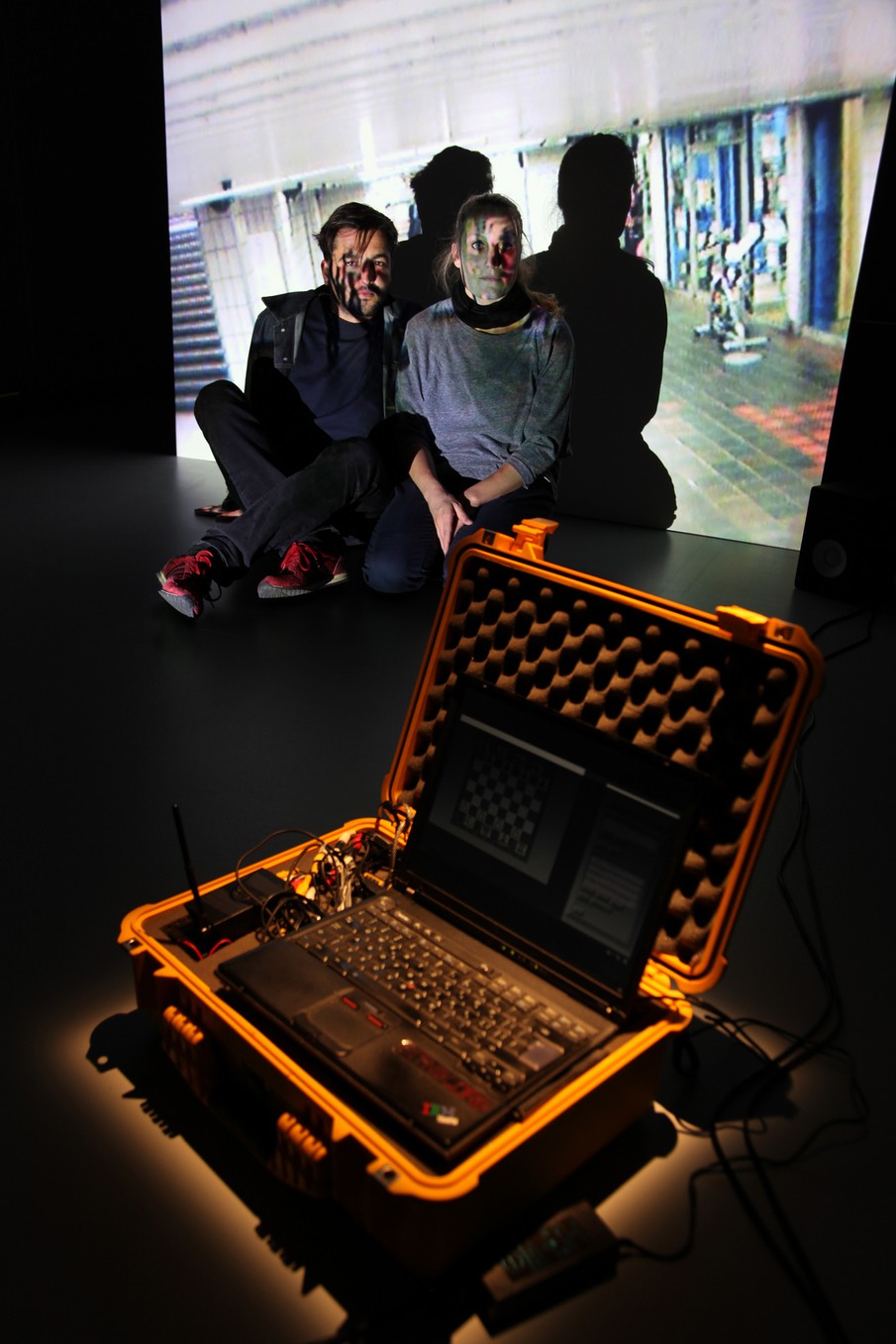In the form of an audiovisual installation, the exhibition deals with questions of how algorithms automatise people’s work and what is revealed when errors occur in algorithmic automated systems, such as postal systems.
Continuing their investigations of how codes are defining the present, the authors Carmen Weisskopf (CH) and Domagoj Smoljo (HR), who make up !Mediengruppe Bitnik, are looking for methods in which algorithms are changing work. The exhibition primarily deals with the questions of control and the moments of the loss of control in the system which the algorithms dominate, when errors and short-term failures suddenly reveal the main structures which are based on the code.
Algorithms have become one of the most powerful forces in the shaping of the 20th century, however, in most cases, they are still only visible and accessible to a small number of people. Every aspect of modern life finds itself under the influence of algorithms in various ways. People give systems of the control of information more and more rights to enter their lives. Driven by personal data and the behaviour of users, the algorithms process and follow their every movement in order to offer them tailor-made services for their everyday needs. At the same time users have no idea at all of the logic and decisions on the basis of which they were created.
Companies such as Uber, Deliveroo and Amazon, which deal in the business of transport, the delivery of food and online shopping, have adopted algorithms for the purpose of directing, monitoring and evaluating the successfulness of a large number of temporary workers who are their employees, in order to quickly, seamlessly and in a standardised way deal with the requested service. Those who employ and advocate for such method of management claim that by this they are creating new employment possibilities, new and cheaper services, transparency and fairness. This is the so-called “gig economy” which is dominated by short-term contracts or part-time work, opposed to permanent jobs.

As an example, one of the first work disputes within the economy of part-time business occurred in the summer of 2016, when a large number of couriers gathered in protest in front of the headquarters of Uber Eats in London. It concerned freelance workers who protested against the latest update of an application. Workers who had never met organised themselves in a way that they themselves, as couriers, ordered food via the application and persuaded arriving couriers to join them in the protest.
The algorithmic management encountered an algorithmic rebellion.